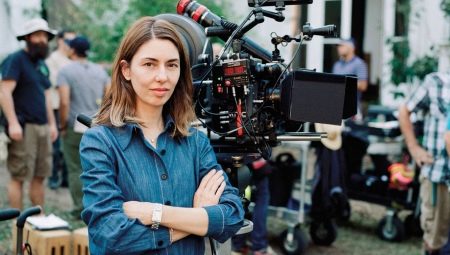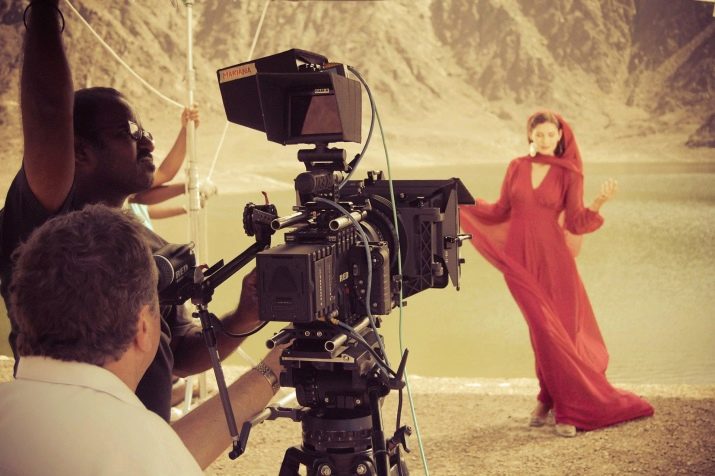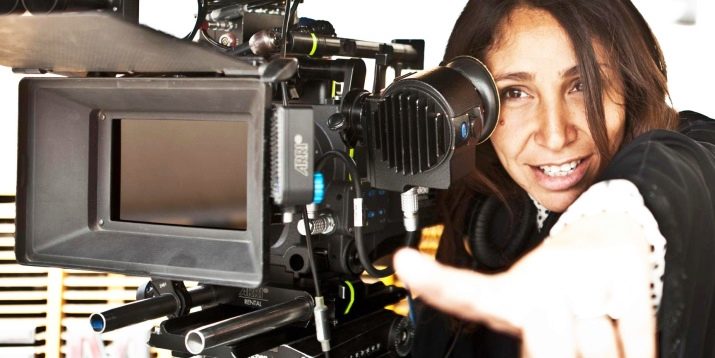What does a director do and how to become one?

To be a director is the cherished dream of many young people. Despite the fact that only a few are gaining fame in the profession, graduates of this specialty still get a unique opportunity to constantly realize their creative potential and find employment even in the most unexpected areas.
Who is this and what is he doing?
A director can be called the head of any creative team. The description of the profession gives an understanding that the range of his activities is extremely wide: he is engaged in work with the script, directs the activities of the lighting and sound engineers and, of course, works with the actor, conveying to him exactly how he should appear in the frame. This person also participates in casting and sketching, works with the angles and colors of the film. In addition to the prestigious profession of a film director, a graduate of this specialty is able to become the head of a theater, circus or any other artistic troupe.
A director's tasks may include creating clips, advertisements and videos for blogs, television programs and news stories.

A talented specialist has the opportunity to prove himself even in such spheres that, at first glance, are not related to the profession, such as the creation of computer games or mobile applications. Some directors organize weddings and birthdays, others run opera troupes, and still others organize concerts. By the way, the most popular occupation - staging films - can be done by not one director, but several.In addition to the main person in charge of the entire filming process and called the stage director, his assistant, called the second director, is most often present on the set.
The duties of a director include ensuring a continuous creative process and meeting deadlines, improving existing productions and introducing new ones into the repertoire, conducting casting and, if necessary, expanding the cast. The "hand" of the director is visible in the creation of sketches, costumes, special effects and sets. He organizes rehearsals and coordinates the work of all staff.
In principle, this specialist can be partially responsible for the promotion as well. The editing director creates a single film from separate films, and the event director controls the quality of the celebration. The responsibilities of the mapping director include the implementation of laser shows and volumetric projections, and the video maker thinks over and implements the production of music videos.


Pros and cons of the profession
One of the main advantages of being a filmmaker is the ability to fully realize your creative potential. An ambitious and vain person will love the opportunity to work with renowned masters of their craft and renowned experts, as well as gain popularity in certain circles. The combination of talent and work should sooner or later lead to good income. An important component of a prestigious profession is the ability to travel around the country and around the world, as well as meet a large number of new people.
By the way, it is not at all necessary for this specialist to be engaged in shooting films - he can realize himself in video blogging, film criticism and other related activities.

The disadvantage of the director's profession can be called a rather difficult path to success. Specialized educational institutions graduate hundreds of young directors every year, but only a few eventually achieve fame. As a result, many of them, instead of shining at awards, are organizing parties, working in chamber theaters or shooting short films. It should be added that even the preparatory stage - the very admission to the university - causes certain difficulties. As a rule, more than 25 people can apply for one place.
Emotional stress and an irregular schedule often lead not only to creative crises, but also to serious health problems. Finally, it should be mentioned that rather difficult working conditions sometimes turn out to be incompatible with family life.

Requirements
Not everyone has a predisposition to become a director.
Personal qualities
Of course, creativity is what any director needs. It is important that he be able to think non-trivially, find a way out of difficult situations, pay attention to details and even create a complete picture in his head at the preparatory stage. This person must be charismatic, able to find a common language with anyone and successfully organize a global work process. Of course, a good director has the makings of a leader. Another important qualities of a specialist are a unique style and vision of the world, energy and a sense of humor.
Since the director is the unequivocal leader of the creative process being implemented, he must create and manage at the same time. This means that it is not recommended to enter the profession for modest and squeezed people who are afraid to make important decisions and are not able to give instructions to others.
By the way, for some specialists a real obstacle to career growth is the lack of willingness to take responsibility for the result. Every day the director has to make a dozen decisions and he must understand that, in fact, he alone is responsible for what is happening.

Knowledge and skills
A good director is not just a talented creator hovering in the clouds, but also an excellent specialist who is versed in camera work, editing, acting and screenwriting, and, of course, directing itself. A huge plus will be a broad outlook and knowledge of culture, art and history. I must say that During the entrance exams for the specialty "Directing", the erudition of applicants is assessed with particular passion. For example, within the framework of just one interview, a future student may be asked how he feels about Nietzsche, who Marcus Aurelius is and in what films Oleg Tabakov starred.
It is important for the director to constantly improve himself: read books, "absorb" the experience of the greats, listen to music (from classics to modern compositions) and constantly receive new information.
In each memorable work of the master, you can find a lot of references and trace what the creator was inspired by at one time or another, and this is possible only with regular filling of his “creative well”.

Education and career
To become a director, you can study both at a theater college and at a university, enrolling in an educational institution either after grade 9 or after grade 11. In college, it will be possible to start getting an education in related areas, for example, "Animation" or "Socio-cultural activities". After college, higher education will be possible in the areas of "Theater Directing", "Film and Television Directing", etc.
Those applicants who become students of the directing department must provide the Unified State Exam result in such subjects as literature, Russian language, history or social studies. but much more important is the successful completion of the creative test and interview, which almost always determines the verdict of the selection committee.
After graduating from the university, it makes sense to take a post-graduate course as an assistant for 2 years.

As for educational institutions, of course, it is worth focusing on reputable universities and colleges, located mainly in the capital and St. Petersburg. For example, it would be nice to submit documents to the largest educational institution in Europe, GITIS, in the direction of theater direction, or to go to the Moscow State Psychological and Pedagogical University, allowing you to learn to be a film and television director.
The specialty "Film and Television Directing", taught at the All-Russian State University of Cinematography named after S. A. Gerasimov, or "Staging and Organization of Theatrical Performances and Holidays" at the Moscow ISI, has proven itself quite well.
but the most prestigious universities for future directors still include GITIS, VGIK, MGPU, TI them. B. Shchukina, SPbGUP and SPbGIK... Recommended colleges that train filmmakers include Moscow State Art Institute, Moscow State Theater named after L.A. Filatov, and TKhTK. If directing is chosen as an additional education, then it is worth going to the Higher School of Directors and Screenwriters.


After training, the newly-minted director can start his career in film studios and television broadcast centers, in production agencies, or in a variety of theaters. For a specialist of this profile, it is also possible to cooperate with singers, dancers and musicians, as well as work in event organizing agencies and large holdings. Of course, participation in independent projects and private interaction with customers are always welcome.
Graduates are encouraged to focus on starting a career as an assistant or co-director. Despite the lower salary, such a profession allows a young specialist to fully integrate into the creative process and prepare for the future responsibility.

How much does he earn?
The salaries of eminent directors are very high, but graduates will have to start small. It should be remembered that The maximum pay will be obtained by working in the field of cinema, theater and television, and the amount earned will depend on the presence of an impressive portfolio, and on your own talent, and on the education received. On average, a theater or circus director's fee varies from 15 to 40 thousand rubles, but a television specialist already receives from 50 to 70 thousand rubles. For a successfully completed film project, a director can earn an amount starting from several hundred thousand rubles.
In Russia, the average director's salary ranges from 25 to 55 thousand rubles, but in Moscow this figure starts from 40 thousand and ends with 120 thousand rubles.

For more on who a director is, see the next video.








